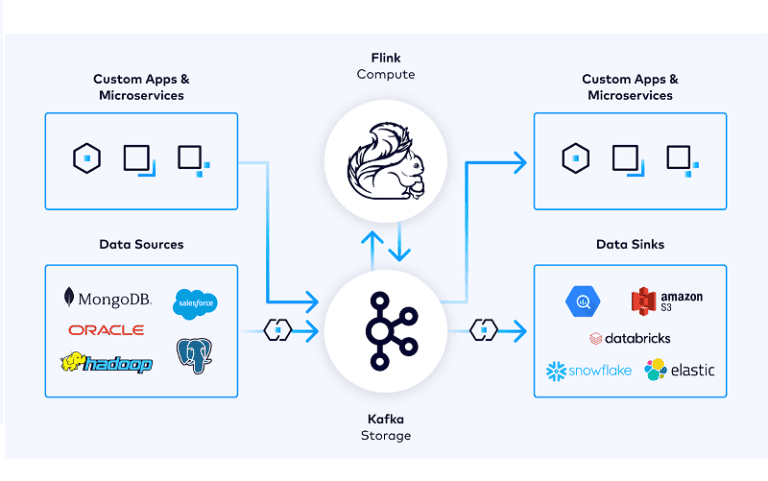Confluent is further expanding the AI and analytics capabilities of Confluent Cloud for Apache Flink and Tableflow. With these updates, developers can accelerate real-time data processing and business intelligence gathering.
According to Confluent, the enhancements help companies better integrate AI into their daily operations. The new features streamline the development of real-time AI applications and improve access to various data sources for analytics and AI applications.
New features Apache Flink
The latest updates in Confluent Cloud for Apache Flink add seamless LLM inference, vector search and built-in machine learning functionality.
With support for Flink Native Inference, development teams can run any open-source LLM directly in Confluent Cloud, simplifying complex workflows. Flink’s new search functionality integrates data from multiple vector databases, making data retrieval and processing more efficient. With built-in ML functionality, applications such as predictive analytics and anomaly detection can be run directly in Flink SQL.
Enhanced features for Tableflow
The updates to Tableflow improve access to operational data, including broader support for open table formats. This makes more data available for advanced analytics and AI applications.
A key enhancement is the full integration of Apache Iceberg, which allows teams to convert Apache Kafka topics to Iceberg tables. This simplifies integration with data warehouses and analytics engines, eliminating complex data preparation and reducing manual effort. This should lead to a consistent real-time “source of truth” for AI-driven applications.
In addition, Tableflow is introducing an early-access program for Delta Lake from Databricks. This improves compatibility with Databricks’ open-format storage layer, enabling faster decision-making and more efficient AI workflows. It provides organizations with a comprehensive real-time view of their operational and analytical data.
Furthermore, Tableflow offers enhanced integration capabilities with catalogue providers such as AWS Glue and Snowflake Open Catalog. Users can more easily integrate their own storage options, providing greater flexibility and better control over data management.
